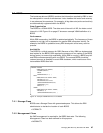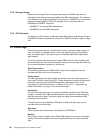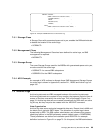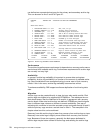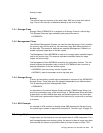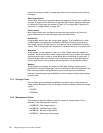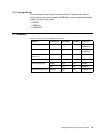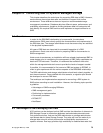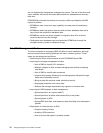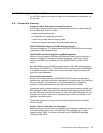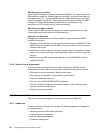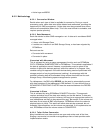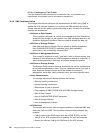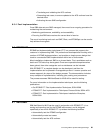
© Copyright IBM Corp. 1999 75
Chapter 8. Converting DB2 to Systems Managed Storage
This chapter describes the techniques for converting DB2 data to SMS. However,
each customer has unique data sets and facilities to support their online
environment. These differences have an impact on recommended storage
management procedures. Database data has different space, performance, and
availability requirements; therefore, dividing database data into categories will
help identify the required SMS services and implement a staged conversion to
SMS.
8.1 Overview
In order for the DB2/SMS relationship to be successful, the data base
administrator (DBA) must clearly specify the characteristics and requirements of
the DB2 data sets. The storage administrator must also ensure they are satisfied
in the physical implementation.
All types of DB2 data are important for successful operation of a DB2
environment. Great care must be taken in preparing DB2 for its conversion to
SMS management.
Under most circumstances, an installation will have already implemented SMS to
some degree prior to considering the management of DB2; likely candidates are
batch and TSO data sets. Therefore, it is assumed that sufficient skills exist
within the storage administrator’s area to provide the levels of support needed.
If possible, it is recommended to first convert a DB2 test system to DFSMS, in
order to gain experience with the various aspects of the DB2/SMS relationship.
The DB2 administrator and storage administrator should work closely together to
test the environment. Once satisfied with this scenario, a migration plan should
be developed to convert DB2 data.
The technique and implementation sequence for converting a DB2 system to
SMS varies according to each installation. However, the following topics provide
a guideline:
• Advantages of SMS managing DB2 data
• SMS management goals
• Positioning for implementation
• Conversion processes
• DFSMS FIT
• NaviQuest
8.2 Advantages of SMS Managing DB2 Data
ACS routines can be designed so that SMS restricts the allocation of data sets in
DB2 Storage Groups to production databases and selected system data sets.
Only authorized users, such as the DB2 administrator or storage administrator
can allocate data in these Storage Groups. They also will have the authority to
allocate data sets with critical performance and availability requirements to
specific volumes. Dual copy provides high availability for selected data sets that



